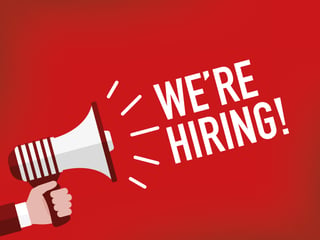(This is the first blog in a three-part series focusing on characteristics of ideal, remote employees and how to effectively manage employees remotely.)
 Hiring remote workers is a challenging task. While the same channels of networking and recruiting are used to find these employees, the interviewing and training process can be radically different. The interview needs to be especially thorough, as this will be a rare face-to-face meeting, and the training needs to be even more transparent and communicative than normal to effectively convey the responsibilities of the job. When managers are evaluating a new candidate, here are the top three characteristics to look for:
Hiring remote workers is a challenging task. While the same channels of networking and recruiting are used to find these employees, the interviewing and training process can be radically different. The interview needs to be especially thorough, as this will be a rare face-to-face meeting, and the training needs to be even more transparent and communicative than normal to effectively convey the responsibilities of the job. When managers are evaluating a new candidate, here are the top three characteristics to look for:
1. Unafraid to ask for help
For remote employees to be successful, it is essential that whenever a conflict arises that they cannot solve independently, they ask for help. When remote workers fall into a cycle of ignoring serious problems or trying to solve problems by going over a manager’s head, operations quickly deteriorate. Constructively addressing these problems may mean communicating in a different fashion. For example, it is important for employees to understand when to make a phone call. Often, remote relationships are dominated by email or instant message communication. Knowing when to actually speak with a manager is a vital skill of any successful remote employee.
2. Self-Managing
Self management is another of the most essential characteristics of a remote employee. Critics of the remote workplace often categorize remote workers as unmotivated people who simply do not want a manager looking over their shoulder during the work day. Yet, a common worry with remote employees is actually the opposite: that they will work too hard and experience burnout. The ideal employee working remotely will neither stretch their work duties to waste time nor stretch themselves thin by doing too much. The skill of self-regulating is crucial in a remote position, as underachieving employees hurt productivity and overachieving employees raise the level of disengagement and turnover.
3. Accountable
Remote employees must be accountable and need to be trusted to achieve set goals. Whether that goal is three client visits per day or three merchandising audits per day, it is essential that managers can count on them to meet these expectations without being checked up on. This type of autonomy will benefit the entire team’s productivity because according to business experts, employees who are trusted are happier and more engaged at work.
Hiring and Refining
Knowing what characteristics of a remote employee to look for and being able to identify them are two different topics. To identify these traits in an interview, consider the candidate’s behavior leading up to it. Did they respond to communication in a prompt and appropriate manner? Did they avoid extraneous questions and comments? Once in the interview, offer a multi-level problem that a person with only all three traits would be able to solve. A skilled candidate will ask questions to clarify the problem, so they will have all possible information before evaluating it.
These recruiting best practices can be effective for businesses in the hiring process. However, there are a number of businesses that already have employees working remotely. It may be beneficial for existing teams to refine operations to instill these characteristics in their current teams.
For example, implementing a Mobile CRM solution can address each of these traits. By using a streamlined system of communication that includes project assignments, messaging features, and shareable client notes, employees will feel empowered to ask clarifying questions and will have visibility to better schedule their working day. Additionally, these tools often provide custom mobile forms that managers can use to create merchandising audits and customer visit reports, heightening the level of employee accountability. For existing teams with remote employees, leveraging this type of software tool can transform average employees into ideal employees.


 Hiring remote workers is a challenging task. While the same channels of networking and recruiting are used to find these employees, the interviewing and training process can be radically different. The interview needs to be especially thorough, as this will be a rare face-to-face meeting, and the training needs to be even more transparent and communicative than normal to effectively convey the responsibilities of the job. When managers are evaluating a new candidate, here are the top three characteristics to look for:
Hiring remote workers is a challenging task. While the same channels of networking and recruiting are used to find these employees, the interviewing and training process can be radically different. The interview needs to be especially thorough, as this will be a rare face-to-face meeting, and the training needs to be even more transparent and communicative than normal to effectively convey the responsibilities of the job. When managers are evaluating a new candidate, here are the top three characteristics to look for:.png?width=480&height=252&name=PRESS%20RELEASE-2%20(4).png)

